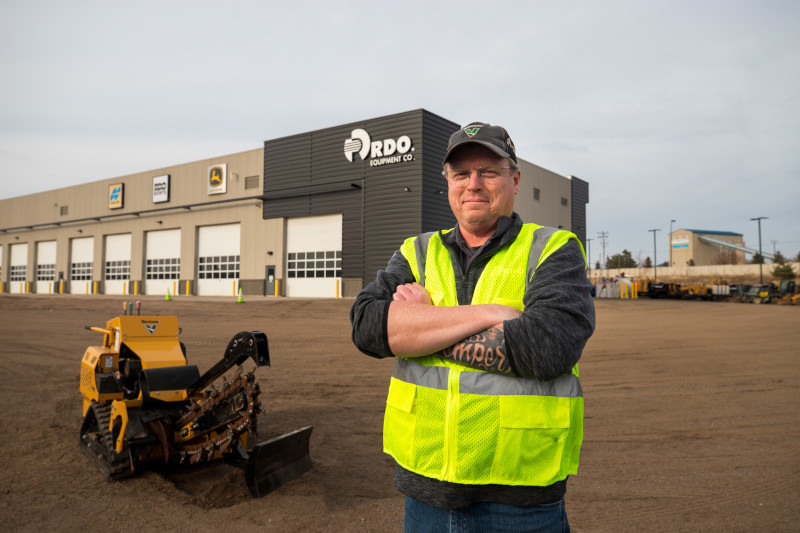Trencher Rental Maintenance
In the equipment rental business, profitability depends on achieving the maximum rental income at the lowest overall cost. Accomplishing this goal involves several factors. Rental machines must meet the needs of customers within a rental store’s trade area. Top-quality equipment with rental appeal and brand-name recognition enhances rentability. Properly maintaining equipment ensures that it performs dependably for customers and retains its value.

Maintaining the overall condition of a trencher can be the single most important factor in productivity during its life cycle. Scheduled maintenance and prompt repair when problems do arise prevent breakdowns in the field and increase the number of rental days during a machine’s lifetime. Some rental store owners tell manufacturers that trenchers maintained on a regular schedule can last as much as 20 percent longer than machines which receive attention only after problems occur.
Performing maintenance in accordance with the manufacturer’s recommendations is important. After each rental, the store’s shop thoroughly pressure washes the machine, and a mechanic conducts a full inspection, including checking bearings and all moving parts. Any necessary repairs are made immediately. Renting well-maintained equipment reduces customer complaints. Not only does the trencher perform more efficiently, chances of breakdowns are greatly reduced. Few things irritate a customer more than rental equipment that is unable to finish a job. Downtime can affect other portions of a project, wasting valuable time and ultimately adding to the total cost of a project.
Digging teeth, digging chain and sprockets are the primary wear parts on trenchers. Worn components not only affect a trencher’s productivity, but operating it with worn teeth and chain causes unnecessary wear on other components of the machine. A worn digging chain does not run smoothly and can generate shock loads that may damage other parts of the machine, including the engine and transmission. Operating equipment with worn chain links will cause sprocket teeth to completely wear through the roller sleeves, damaging the pins that connect chain links. An improperly tensioned chain may slip off the sprockets, reducing trencher performance. Inspect digging chain, including roller links, for wear and correct tension.
Refer to the operator’s manual for proper chain tension and procedures for making adjustments.
Worn digging teeth cause unnecessary stress on the digging chain, which in turn taxes the engine and, ultimately, the trencher operator. Teeth can wear prematurely or unevenly. As soon as a tooth becomes dull, it should be replaced (replacement teeth and bits should conform to the pattern on the digging chain). Worn teeth indicate that it is time to inspect sprockets and replace them if necessary. When you install new sprockets, you should also replace the digging chain. Operating an old, worn chain on new sprockets causes premature sprocket wear; running a new chain on worn sprockets causes excessive chain wear and can result in chain failure.
Engines should be serviced in accordance with manufacturer recommendations. Lubrication and service of hydraulic and drive systems should be performed at intervals prescribed by the manufacturer. Equipment that is operated in extremely adverse and dusty conditions may require service even more frequently.
Monitoring each machine’s hour meter helps keep routine maintenance on schedule. Very short rental periods usually require little more of customers than adding fuel (be sure they know the proper type) and monitoring engine oil and other fluid levels. When a machine is out for an extended period, it is important that service is performed on schedule. Many rental centers have found the best way to make sure this is done is to perform the maintenance themselves, including the cost in the rental contract.
Equipment appearance also is important. Customers prefer to rent equipment that is clean and appears to be in good condition, and studies document that they take better care of well-maintained machines while they are using them.
Matt Collins is the compact equipment product manager for Ditch Witch, based in Perry, Okla.




